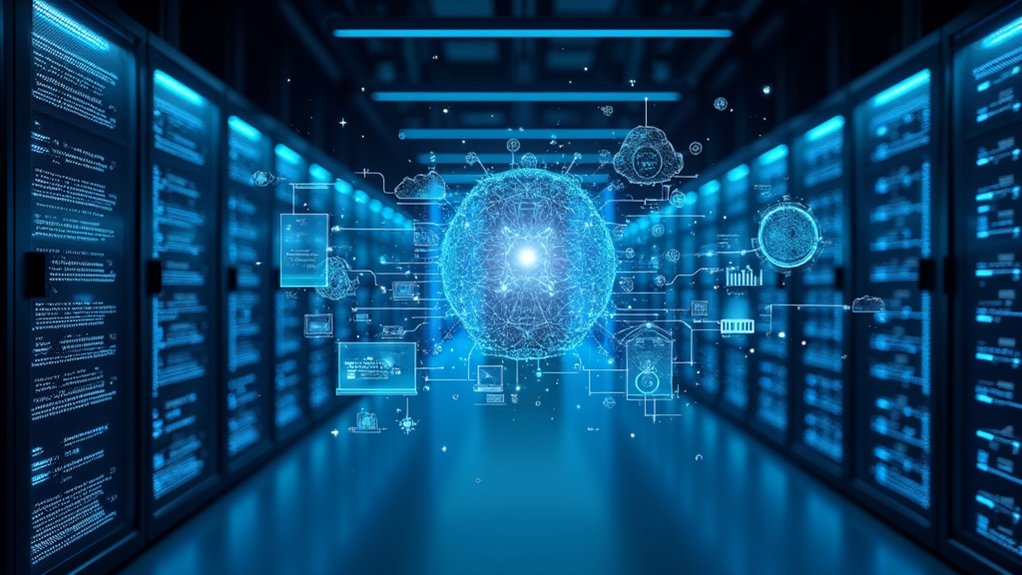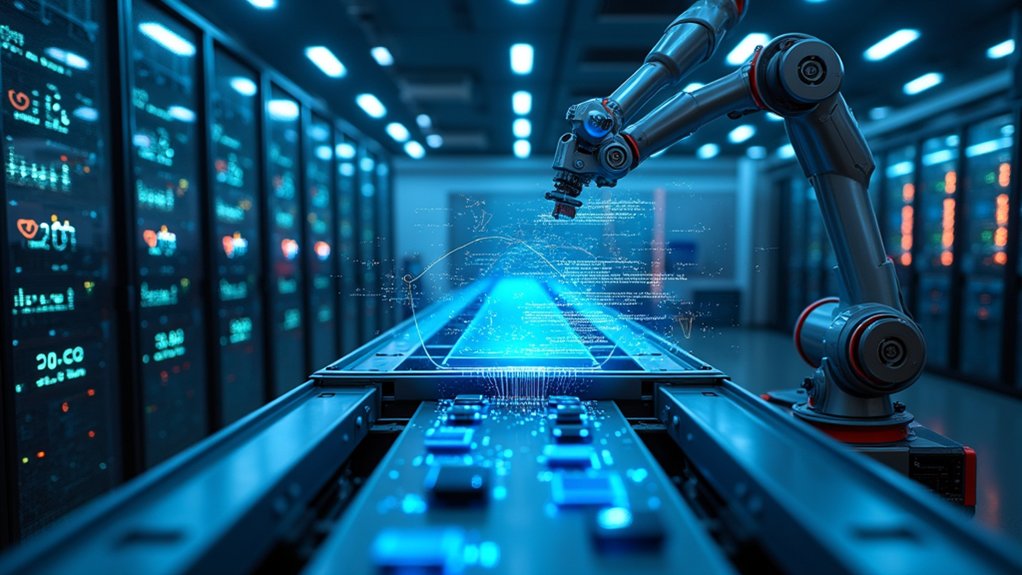An AI platform is a thorough toolkit that manages the entire lifecycle of machine learning solutions. It combines technologies for creating, testing, and using AI models efficiently. These platforms include tools for data management, model training, and deployment. They speed up development, enhance team productivity, and improve model accuracy. AI platforms serve industries from manufacturing to banking with applications like predictive maintenance and fraud detection. The right platform choice depends on specific business needs and technical requirements.

The foundation of modern artificial intelligence development, an AI platform serves as a complete toolkit for organizations building machine learning solutions. These platforms combine various technologies that work together to help companies create, test, and use AI models efficiently. They're designed to handle the entire lifecycle of AI applications from start to finish.
AI platforms include tools that manage data, prepare it for analysis, and transform it into useful formats. They also provide features for building and training machine learning models. Once models are created, these platforms help evaluate how well they work and validate their results. They then make it easy to deploy these models and monitor their performance over time.
One of the main advantages of AI platforms is how they speed up the development process. Teams can work more productively and create better AI solutions faster. These platforms help improve model accuracy and allow AI projects to grow as needed. Companies often save money by automating many steps that would otherwise require manual work.
The core components of AI platforms include systems for bringing in and storing data, frameworks for machine learning, tools to track different versions of models, and systems to manage experiments. They also include engines that help models make predictions in real-world applications. Many leading platforms now include user-friendly interfaces allowing non-technical team members to participate in AI development processes.
These platforms are used in many industries. Manufacturers use them to predict when machines need maintenance. Banks use them to spot fraud. Online stores create personalized product recommendations. Some businesses opt for AI as a Service solutions that provide access to AI capabilities without significant upfront investment in infrastructure. Other common uses include image recognition, voice recognition, and powering chatbots.
Companies can choose from several types of AI platforms. Some run in the cloud, others on local servers, and some use a mix of both. Effective AI platforms require elastic compute resources for scaling to meet the varying demands of complex model training workloads. There are also platforms designed for edge computing and open-source options available.
When selecting an AI platform, organizations consider factors like how well it scales, how it fits with existing systems, which ML frameworks it supports, security features, and overall cost compared to benefits.
Frequently Asked Questions
How Much Technical Expertise Is Needed to Use an AI Platform?
The technical expertise needed to use AI platforms varies widely.
Entry-level tools offer drag-and-drop interfaces requiring minimal skills, designed for non-technical users.
More advanced platforms demand programming knowledge in Python or R, plus understanding of machine learning concepts.
Today's market includes increasing numbers of no-code solutions with AutoML features, making AI more accessible to "citizen data scientists" without specialized training.
Can AI Platforms Integrate With Existing Business Software?
Yes, AI platforms readily integrate with existing business software.
Most platforms offer APIs and pre-built connectors for common CRM, ERP, and productivity tools. They can pull data from multiple systems while supporting real-time streaming for continuous model updates.
Integration complexity varies based on existing infrastructure. Cloud-based AI platforms typically integrate more easily than on-premises solutions.
Many platforms also include low-code tools so non-technical users can create AI-powered workflows.
What Security Measures Protect Data on AI Platforms?
AI platforms employ multiple security measures to protect data. These include end-to-end encryption with AES-256 standards and secure key management.
Access controls like multi-factor authentication and role-based permissions restrict unauthorized use. Network security features firewalls, VPNs, and DDoS protection.
Most platforms maintain compliance with standards like SOC 2 and GDPR, with regular third-party audits verifying their security measures.
How Are AI Platforms Priced and Licensed?
AI platforms use various pricing models.
Consumption-based pricing charges only for what's used, like API calls or processing time.
Subscription models offer fixed monthly or yearly fees with tiered plans.
Many platforms combine both approaches in hybrid models.
Large organizations often get custom enterprise licensing with negotiated rates and extra services.
Most platforms include free tiers for testing before committing to paid options.
Can AI Platforms Be Customized for Specific Industry Needs?
AI platforms can indeed be customized for specific industries. Companies are fine-tuning these systems to understand industry terminology and handle unique data types.
Custom AI platforms offer improved accuracy for specialized tasks in healthcare, finance, manufacturing, retail, and legal sectors.
While customization requires significant investment and domain expertise, it often delivers competitive advantages through better handling of industry-specific challenges and seamless integration with existing systems.









